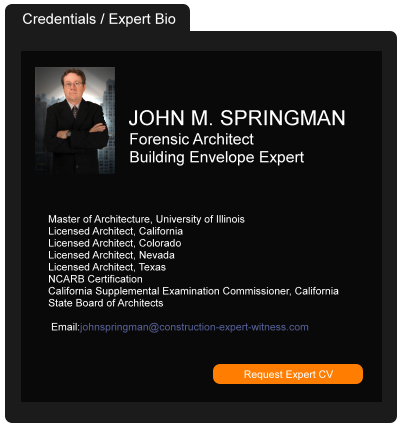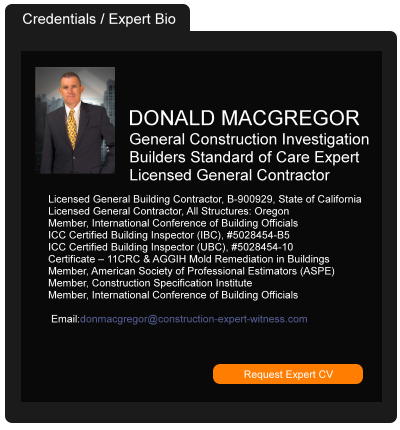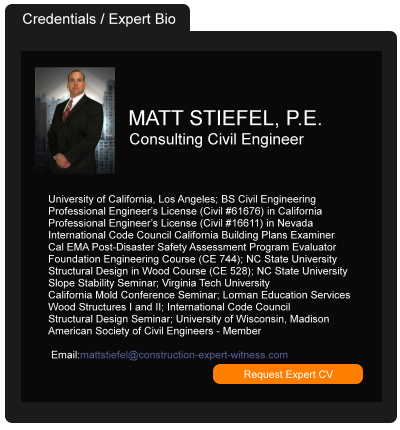Labor Under the Miller Act And Estoppel of Statute of Limitations
May 08, 2023 —
David Adelstein - Florida Construction Legal UpdatesIf you want a case that goes into history of the federal Miller Act, check out the Fourth Circuit Court of Appeal’s opinion in U.S. ex rel. Dickson v. Fidelity and Deposit Company of Maryland, 2023 WL 3083440 (4th Cir. 2023). While I am not going to delve into this history, it’s a worthwhile read. It is also a worthwhile read for two other points.
First, it discusses what constitutes “labor” under the Miller Act.
Second, it discusses doctrine of estoppel to prevent a surety from raising the statute of limitations to bar a Miller Act payment bond claim, which is a doctrine you do NOT want to rely on, as this case reinforces.
Both of these points applicable to Miller Act claims are discussed below.
This case dealt with a prime contractor renovating staircases that was terminated by the federal government. The prime contractor hired a professional engineer as its subcontractor to serve as its project manager and supervise labor on the project. The engineer/subcontractor also had “logistical and clerical duties, taking various field measurements, cleaning the worksite, moving tools and materials, and sometimes even watering the concrete himself.” Dickson, supra, at *1.
Read the court decisionRead the full story...Reprinted courtesy of
David Adelstein, Kirwin Norris, P.A.Mr. Adelstein may be contacted at
dma@kirwinnorris.com
DC Metro Extension’s Precast Supplier Banned from Federal Contracts
November 16, 2020 —
Jim Parsons - Engineering News-RecordStowe, Pa.-based Universal Concrete Products, which supplied hundreds of defective precast panels for the $2.7 billion Silver Line light rail extension in northern Virginia, has received a three-year ban on participating in federally financed transportation projects. Imposed by the Federal Transit Administration, the ban makes Universal ineligible for contracts, grants, loans or other financial assistance from agency of the federal government until the end of 2023.
Reprinted courtesy of
Jim Parsons, Engineering News-Record
ENR may be contacted at ENR.com@bnpmedia.com
Read the full story... Read the court decisionRead the full story...Reprinted courtesy of
Developers Can Tap into DOE’s $400 Million for Remote and Rural Clean Energy Projects
December 10, 2024 —
Robert A. James, Elina Teplinsky, Alicia M. McKnight, Sidney L. Fowler & Clarence H. Tolliver - Gravel2Gavel BlogOn October 3, 2024, the Department of Energy Office of Clean Energy Demonstrations announced a Notice of Funding Opportunity (NOFO) to fund up to $400 million for clean energy projects in rural and remote areas via its Energy Improvements in Rural or Remote Areas program. The NOFO will provide awards ranging from $2 million – $50 million, with plans to fund 20 to 50 projects. Awards will require a non-federal cost share, range across four topic areas, and target projects in rural and remote communities with populations of 10,000 people or fewer.
Eligibility
Applications are open to a wide range of entities, including for-profit and nonprofit organizations, state and local governmental entities, Indian Tribes and Tribal organizations, institutions of higher education, rural electric cooperatives, incorporated and unincorporated consortia, farming associations and cooperatives, and labor unions. Generally applicants must be U.S. entities, but foreign entities may be allowed to participate in limited circumstances. Applicants must identify at least one area in the U.S. or U.S. territories with a population of up to 10,000 people which will benefit from the proposal.
Reprinted courtesy of
Robert A. James, Pillsbury,
Elina Teplinsky, Pillsbury,
Alicia M. McKnight, Pillsbury,
Sidney L. Fowler, Pillsbury and
Clarence H. Tolliver, Pillsbury
Mr. James may be contacted at rob.james@pillsburylaw.com
Ms. Teplinsky may be contacted at elina.teplinsky@pillsburylaw.com
Ms. McKnight may be contacted at alicia.mcknight@pillsburylaw.com
Mr. Fowler may be contacted at sidney.fowler@pillsburylaw.com
Mr. Tolliver may be contacted at clarence.tolliver@pillsburylaw.com
Read the court decisionRead the full story...Reprinted courtesy of
“You’re Out of Here!” -- CERCLA (Superfund) Federal Preemption of State Environmental Claims in State Courts
October 20, 2016 —
Joshua J. Anderson & John E. Van Vlear – Newmeyer & Dillion LLPThe Comprehensive Environmental Response, Compensation, and Liability Act, 42
U.S.C § 9601 et seq. (“CERCLA”), commonly referred to as “Superfund,” is a federal statute
that provides funding and cost-recovery to address our nation’s worst hazardous-waste
sites. While CERCLA generally vests United States District Courts with exclusive original
jurisdiction over all related controversies, section 113(h) of the Act delays such jurisdiction
while the United States Environmental Protection Agency supervises or undertakes
environmental response action plans. What impact does this delayed federal jurisdiction
have on state law claims brought in state courts? Short answer: “You’re out of here!”
Litigants are precluded from bringing claims in state court that “challenge” environmental
response actions under CERCLA during the pendency of those actions.
Reprinted courtesy of
Joshua J. Anderson, Newmeyer & Dillion LLP and
John E. Van Vlear, Newmeyer & Dillion LLP
Mr. Anderson may be contacted at joshua.anderson@ndlf.com
Mr. Van Vlear may be contacted at john.vanvlear@ndlf.com
Read the court decisionRead the full story...Reprinted courtesy of
Contractors: Revisit your Force Majeure Provisions to Account for Hurricanes
September 14, 2017 —
David Adelstein - Florida Construction Legal UpdatesWe now know and can appreciate the threat of hurricanes. Not that we did not appreciate the reality of hurricanes–of course we did–but Hurricane Harvey and Hurricane Irma created the type of actual devastation we fear because they hit close to home. The fear came to life, creating panic, anxiety, and uncertainty. It is hard to plan for a force majeure event such as a hurricane because of the capriciousness of Mother Nature. But, we need to do so from this point forward. No exception! And, I mean no exception!!
A force majeure event is an uncontrollable event that cannot be anticipated with any degree of definitiveness. The force majeure event will excusably delay or hinder performance obligations under a contract. One type of force majeure event is a hurricane—an uncontrollable and unforeseen act of Mother Nature.
Read the court decisionRead the full story...Reprinted courtesy of
David Adelstein, Florida Construction Legal UpdatesMr. Adelstein may be contacted at
Dadelstein@gmail.com
“But I didn’t know what I was signing….”
May 30, 2018 —
Bobby Kethcart - Snell & Wilmer Real Estate Litigation BlogIn real estate cases—which frequently involve long purchase agreements, loan documents, personal guarantees, deeds of trust, etc.—we’ve likely all had a client or opposing party who trots out the line that they didn’t know what they were signing, or they didn’t read or understand what they were signing, so the document shouldn’t be enforced according to its terms.
Most of us instinctively believe the claim is a loser: You signed the document, you’re bound by it.
But is this actually right?
Well, we did some digging. Here is the Arizona law on the subject:
Nationwide Resources Corp. v. Massabni, 134 Ariz. 557, 658 P.2d 210 (App. 1982):
“A mistake of only one of the parties to a contract in the expression of his agreement or as to the subject matter does not affect its binding force and ordinarily affords no ground for its avoidance, or for relief, even in equity.”
“A manifestation of acceptance to the offeror or his agent forms a contract regardless of the intent of the acceptor.”
Read the court decisionRead the full story...Reprinted courtesy of
Bobby Kethcart, Snell & WilmerMr. Kethcart may be contacted at
rkethcart@swlaw.com
Couple Claims Contractor’s Work Is Defective and Incomplete
December 04, 2013 —
CDJ STAFFWilliam and Prudence Dziatkowicz have sued Vince Bruno Construction, LLC over a house they contracted to have built in Weirton, West Virginia. According to the Dziatkowiczes, they contracted with Mr. Bruno and his self-named company to build a house, for which they would pay $248,250. The couple claims that Vince Bruno construction never completed work on the house, eventually abandoning the project. Further, they allege that the work done is defective, including improper installation of floor beams, and a failure to properly protect the project from weather.
Additionally, the couple contends that the contractor failed to pay a lumber company, leading to a lawsuit against the Dziatkowiczes and a lien on their house. The Dziatkowiczes are suing Vince Bruno Construction for more than $355,000 in damages.
Read the court decisionRead the full story...Reprinted courtesy of
Employee or Independent Contractor? New Administrator’s Interpretation Issued by Department of Labor Provides Guidance
August 04, 2015 —
Tanya Salgado – White and Williams LLPThe question of whether a worker should be classified as an independent contractor or an employee is fraught with confusion and misunderstanding for many businesses. Compounding the problem is the fact that there are a number of different tests used to determine employee status, which vary by jurisdiction and by the particular law in question. For example, the Internal Revenue Service uses the common law rules which focus on the degree of control and independence exercised by the worker. In contrast, the United States Department of Labor uses the “economic realities” test which focuses on whether the worker is economically dependent on the employer.
In an effort to help combat the confusion over proper worker classification, the United States Department of Labor (DOL) has issued a new Administrator’s Interpretation that provides a detailed explanation of the test used by the DOL to determine if a worker has been misclassified as an independent contractor. The DOL enforces the Fair Labor Standards Act (FLSA), which mandates that employees (but not independent contractors) be paid minimum wage and overtime. When a business misclassifies non-exempt workers as independent contractors, and those workers are not paid the minimum hourly wage for their labor, or are not paid overtime when they work more than 40 hours in a workweek, this violates the FLSA.
Read the court decisionRead the full story...Reprinted courtesy of
Tanya Salgado, White and Williams LLPMs. Salgado may be contacted at
salgadot@whiteandwilliams.com


































































